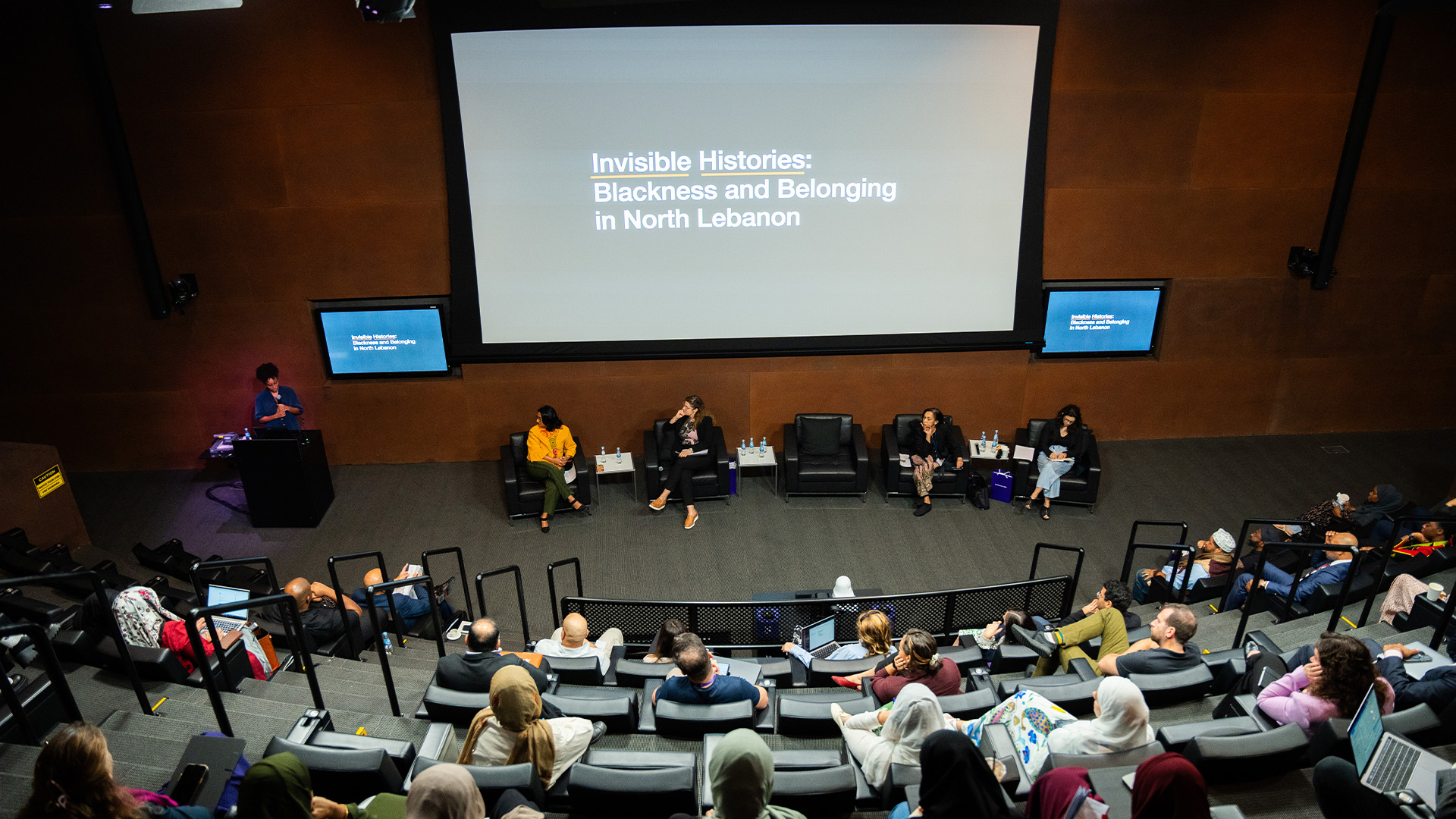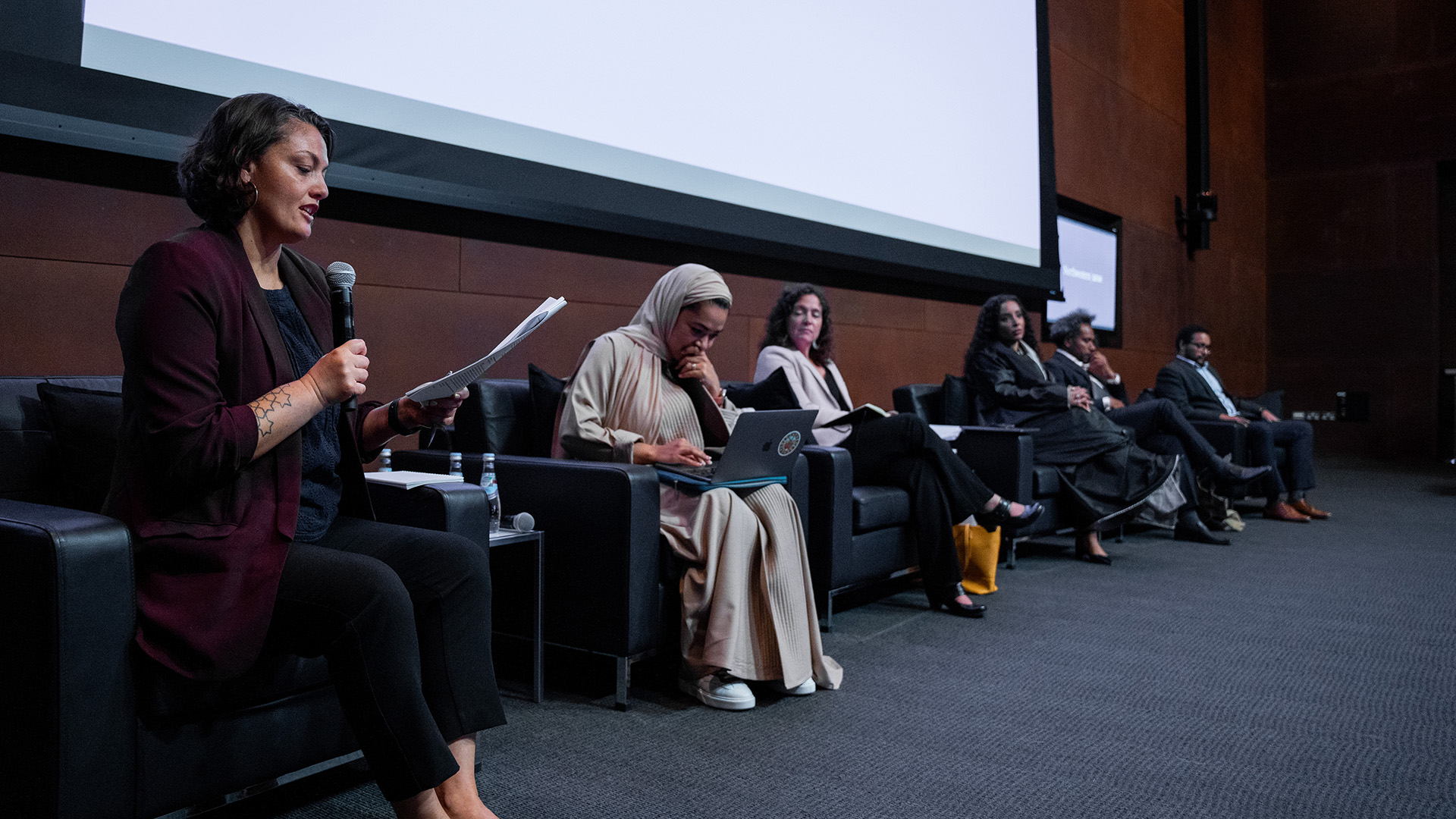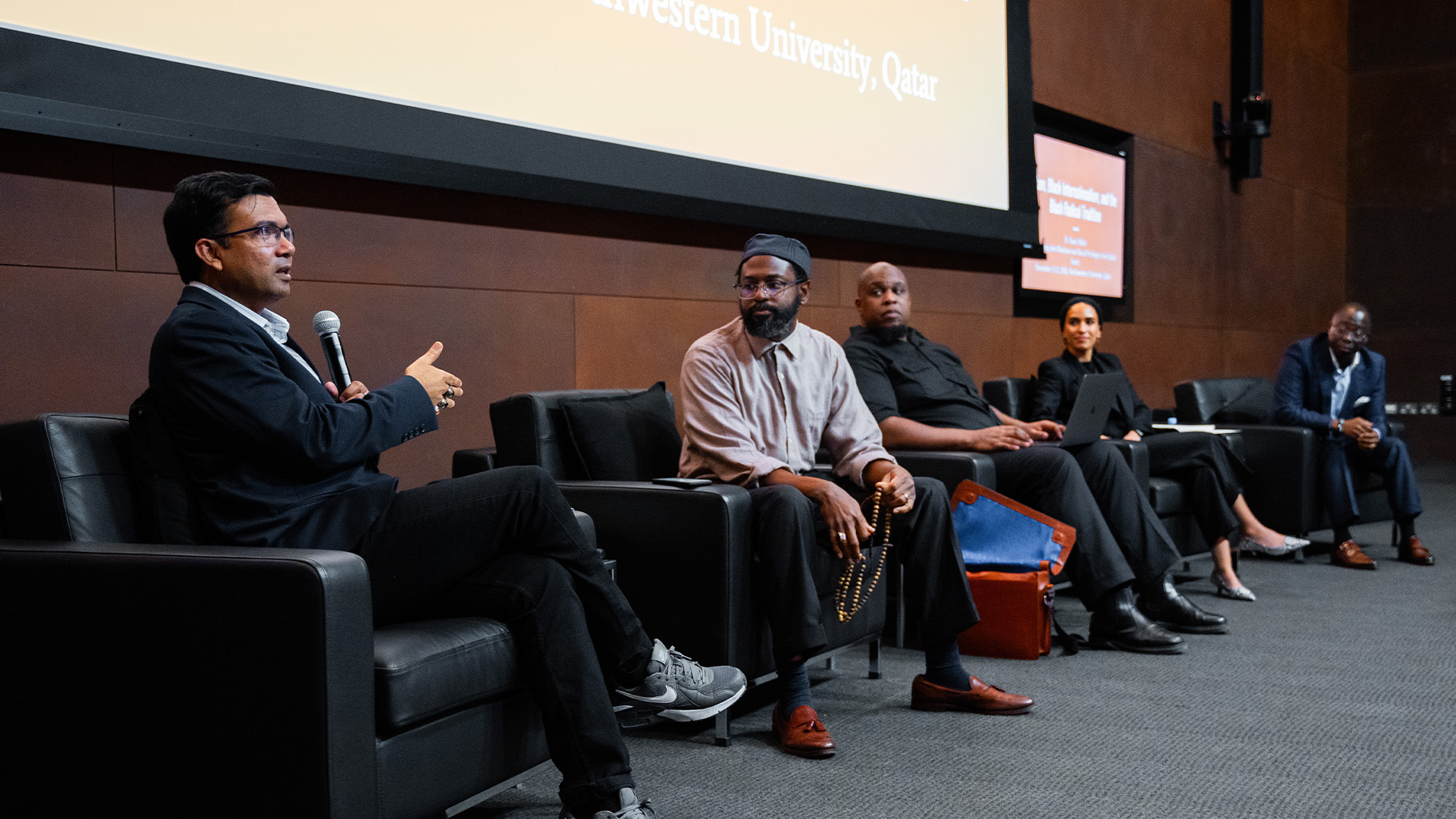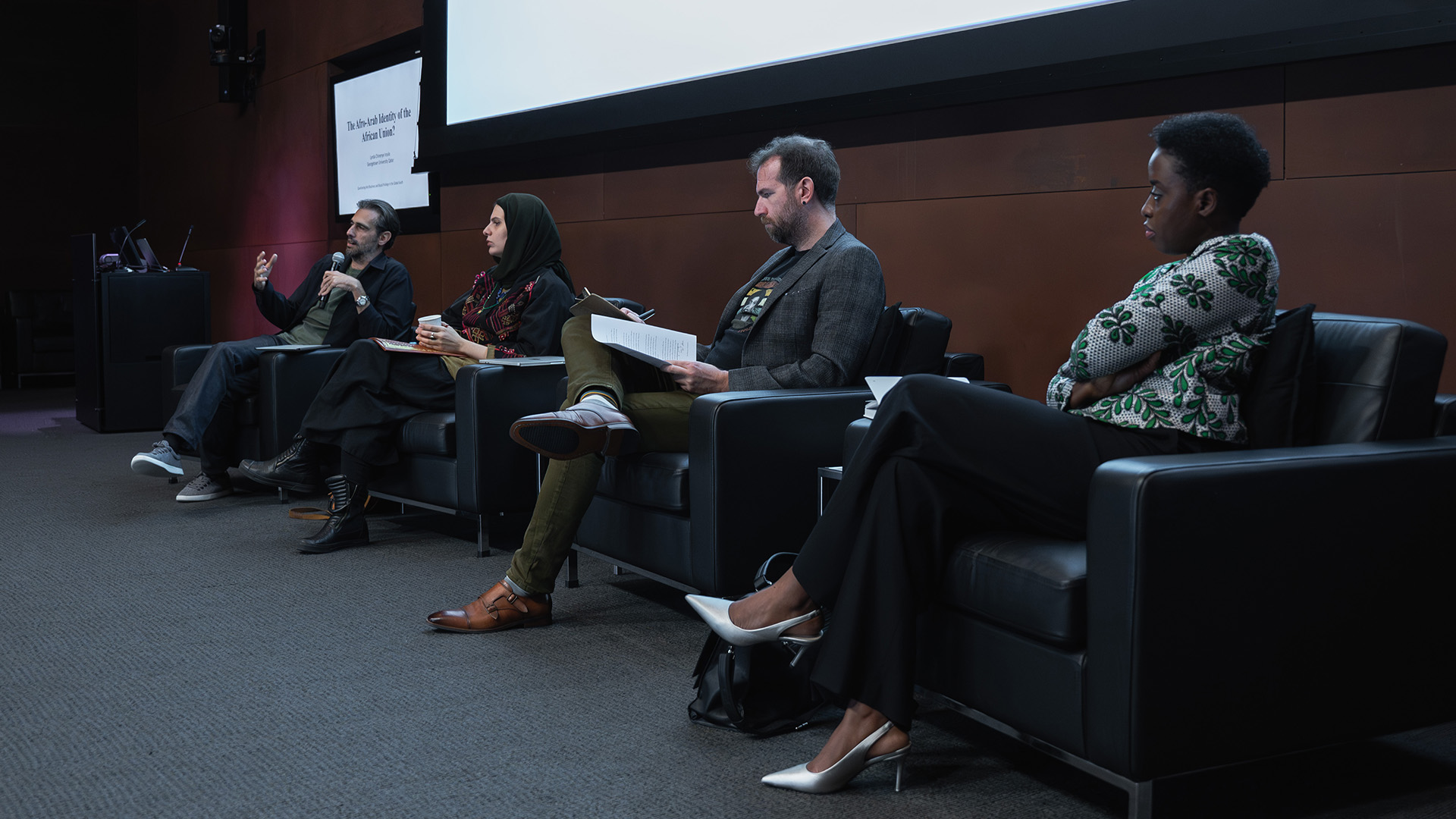Program
Monday, November 11
Welcome and Introductory Remarks
9:15 - 9:30 a.m.
Marwan Kraidy, Dean and CEO, Northwestern University in Qatar, Anthony Shadid Chair of Global in Global Media, Politics and Culture, Northwestern University
Zachary Wright, Associate Dean for Faculty Affairs, Professor of History and Religious Studies, Northwestern University in Qatar
Panel I: Black-Arab relations
9:30 - 11:30 a.m.
Moderator: Scheherazade Safla, Assistant Professor of Journalism, Northwestern Qatar
The Question of Anti-Blackness among Arab minorities in Sub-Saharan Africa
Dahlia El-ZeinNorthwestern University in Qatar
Abstract
In October 2024, amid the Israeli war on Lebanon, Senegal repatriated 117 Senegalese citizens of Lebanese descent, drawing attention to the century-old Lebanese presence in West Africa. This paper examines the historical roots of anti-Blackness among Arab minorities in Sub-Saharan Africa, using the Lebanese-Syrian community in Senegal as a case study. Drawing on shared colonial histories in French West Africa (1895–1958) and French-mandate Lebanon and Syria (1920–1946), it explores how Ottoman and Trans-Saharan slavery, French colonialism, and socio-political factors constructed “Black” and “Arab” identities, shaping and re-shaping racial categories and hierarchies across temporalities and geographies. This analysis reveals how these racialization processes and colonial structures continue to influence anti-Blackness and Arab-African relations in the region today.
Biography
Dahlia El-Zein is an Assistant Professor of History at Northwestern University in Qatar. She has a PhD in Middle Eastern and African History from the University of Pennsylvania with a certificate in Africana Studies and a Masters in Arab Studies from Georgetown University. Her current book project, Dakar–Beirut: Race and Empire in French West Africa and the Levant (1920–1960), examines race-making from below, from the perspective of West African colonial soldiers and Lebanese Syrian migrants within the context of the French Empire, as it remade both modern-day Senegal and Lebanon in the early-to-mid twentieth century. She has published in the Journal of Middle East and North African Migration Studies, the Journal of the Cultural Studies Association, and the Journal of Colonialism and Colonial History.
Invisible Histories: Blackness and Belonging in North Lebanon
Nisreen KajCreative and Communications Professional
Abstract
A historically Black neighborhood in the port town of Mina, Hosh Al Abeed (“Courtyard of the Slaves”) carries a legacy often absent from official records. This presentation shares excerpts from conversations with its residents—stories of marginalization, identity, resilience, and resistance. From reflections on their origins (often ending with an assertion of their Lebanese identity) and experiences with racism to debates on the neighborhood's recent name change, these narratives challenge assumptions about national belonging—about who "belongs" in Lebanon—and aim to reclaim a place within the country’s historical record, showing how Hosh Al Abeed resists erasure.
Biography
Alongside her work as an editor and copywriter, Nisreen develops projects—exhibitions, film, and writing—that examine “race” and identity. Drawing on her academic background in racism and ethnicity studies, she bridges creative practice and advocacy to explore narratives of othering and belonging through photography, personal archives, text, audio, and video.
Dark Knuckles: Bleaching in Sudan’s Skin-Scape
Rogaia AbusharafGeorgetown University in Qatar
Biography
Rogaia Mustafa Abusharaf is Professor of Anthropology at Georgetown University in Qatar. Her areas of expertise include human rights, gender and sexuality, the intersectionality of race and gender, migration and diasporic studies, African migrations, and humanistic and political anthropology, with a geographic focus on her native Sudan, the Gulf, Zanzibar, and the Indian Ocean. Professor Abusharaf is the author of several books, including Darfur Allegory (University of Chicago Press, 2021), Transforming Displaced Women in Sudan: Politics and the Body in a Squatter Settlement (University of Chicago Press, 2009), and Wanderings (Cornell University Press, 2002). She is the editor of a special issue of South Atlantic Quarterly (Duke University Press, 2010), Female Circumcision: Multicultural Perspectives (University of Pennsylvania Press, 2006), and she is the co-editor of Africa and the Gulf Region: Blurred Boundaries and Shifting Ties (Gerlach Press, 2015). Professor Abusharaf’s work has been supported by the Guggenheim Foundation, the Royal Anthropological Institute, the Sir William Luce Memorial Fellowship, Andrew Mellon and MIT Center for International Studies, and the Rockefeller Bellagio Study Center. She received her Ph.D. in Anthropology from the University of Connecticut.
White Privilege/Arab Fear: Racialized Terror in the Jim Crow South
Sarah GualtieriGeorgetown University in Qatar
Biography
Sarah Gualtieri is Professor of History and American Studies at Georgetown University in Qatar. Professor Gualtieri’s research and teaching cover Middle Eastern studies, migration, Arab American studies, and critical ethnic studies, with a particular focus on race, gender, and power. Professor Gualtieri is the author of Between Arab and White: Race and Ethnicity in the Early Syrian American Diaspora (University of California Press, 2009), which examines the history of Arab racial formation in the United States with an emphasis on the question of “whiteness.” Her second book, Arab Routes: Pathways to Syrian California (Stanford University Press, 2019), looks at the histories of Syrian, Lebanese, and Palestinian migrants in Southern California, focusing on connections and solidarities with the Latin American community. Professor Gualtieri received her Ph.D. in Middle East History from the University of Chicago.




